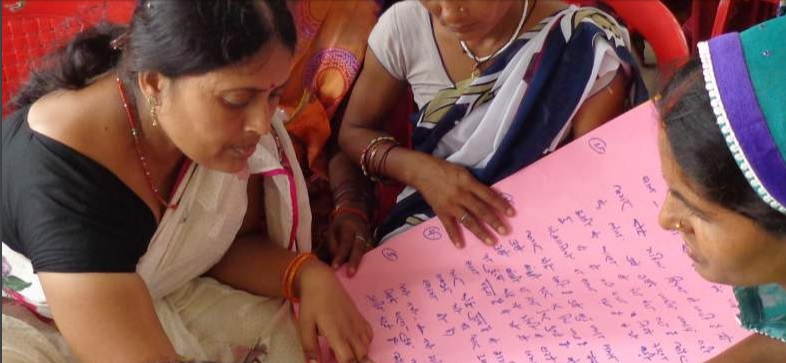WOMEN EMPOWERMENT

After 10 years of enforcement of a milestone law to protect women from domestic violence ‘The Protection of Women Against Domestic Violence Act’ (PWDVA), nothing much has changed for vast number 0f women in the country.
During one of my visit to Patna, I heard Shazina saying “today if I am living a life with dignity it is just because of PWDVA”. Though Shazina had filed her case in October 2009 within PWDVA and got the order passed in her favour in March 2010, but it took another year to get maintenance credited in her account from her husband’s salary. She believes, “if this Act is enforced in right spirit many more women from Bihar and from our country will be able to live a life with dignity.”
I am sure there will be many more Shazinas across country; typically, better educated and seizing the protection of law to fight violence and seek justice persistently. At the same time, the ones are struck with an uneasy question- why are there fewer such Shazinas while the incidence of violence is seemingly so high? The study done by CARE India offers some critical insights on why the implementation of law is still by and large ineffective and importantly what can be done about this.
The study ‘An Analysis of Perceptions of Domestic Violence and Efficacy of the Implementation of the PWDV Act (2005)’, has been conducted in nine districts (Patna, Samastipur, Betiah, Gaya, Bhagalpur, Siwan, Munger, Araria and Supaul) of Bihar. The right mix of qualitative and quantitative data gathered from various families from rural and urban setup along with interview with different service providers and number of Govt. officials from all levels, provide holistic view of the common perception of the issue and the assessment of implementation of law in the state.
After 10 years of existence of the law regarding awareness about domestic violence and PWDV Act, still almost 50% respondent said that they did not know that violence against women is a legal crime. At Local level service providers, 75% of them have never been part of any discussions on PWDVA so far. Also, there has been varied understanding about the PWDV Act at all levels and no uniformity in perception of domestic violence among all stakeholders interviewed.
As per records though in Bihar out of 38 districts, 35 have Helplines and 21 have Short Stay Homes exists and often it is thought that more infrastructures positively impact the survivals’ access to justice. But when 86% of the respondent reported that they don’t know about the existence of such institutions in their districts and 80% respondents said that they don’t know where to report such cases, perhaps the study argue on the need for revisiting awareness generating mechanism put in place by the state. Fewer who knew about these institutions, quoted long distance and the inadequate infrastructure are the two critical factors one need to focus to improve the access to these services by the survivors.
On assessing the impact of domestic violence on social wellbeing of women, the study has re-established the fact how domestic violence directly impacts women’s health. As one of the key finding of the study indicates that 61% female and 43% male respondents said that violence has a direct bearing on the birth of underweight child. And more than 60% said that husband was responsible for taking decision regarding abortion in the family, which can be further analysed to understand its link to child sex ratio; as per 2011 census Bihar is one among three states which has shown declining trend, 942 (2001) to 933 (2011). Also how dependency on husband increases the susceptibility to domestic violence is also been evident by the study.
Way forward
Though the community and the stakeholders felt generating awareness on domestic violence and the law will help in mitigating the issue, but the study also re-establishes the importance of coordination and convergence of services among various institutions/departments as significant factor to reach out to more number of survivors. Achieving policy goals without allocating enough fund is another area of concern. And the study brings forefront the issue of managing implementation of the law with miniscule allocation of fund. How to increase the access of survivors to justice is another important question the study focussed upon. One of the solution the study highlights is to expand the services both in rural and urban setups. As systemic research always supports in staying connected with real ground level issues and support in fixing up appropriate timely measures, but this is currently missing from the entire framework of policy implementation mechanism.
These and many more findings in the publication show that there is lot of hope from the law to ensure a life with dignity for all women, when it is implemented in its full spirit. The state has already taken lot of positive steps and there are many vibrant active civil society organizations working on the issues in Bihar. These are positive steps in the right direction. However, the findings also light up the road ahead and indicate all that needs to be done in line to shield the beliefs of survivors like Shazeena in the law and the system of our country.
OP-ED_Study on Domestic Violence & PWDV Act in Bihar by Lata Krishnan
(Shazeena is the original name of the survivor from Patna and she has requested the writer to use her original name so that this can encourage other women to come forward to talk about the issue and generate awareness about the benefits of PWDVA).




